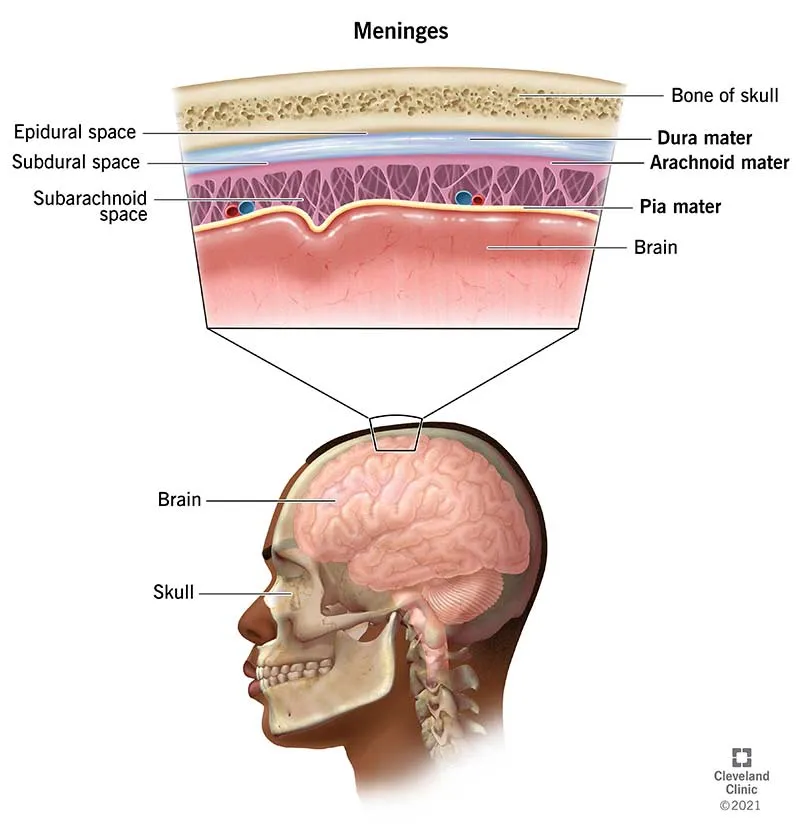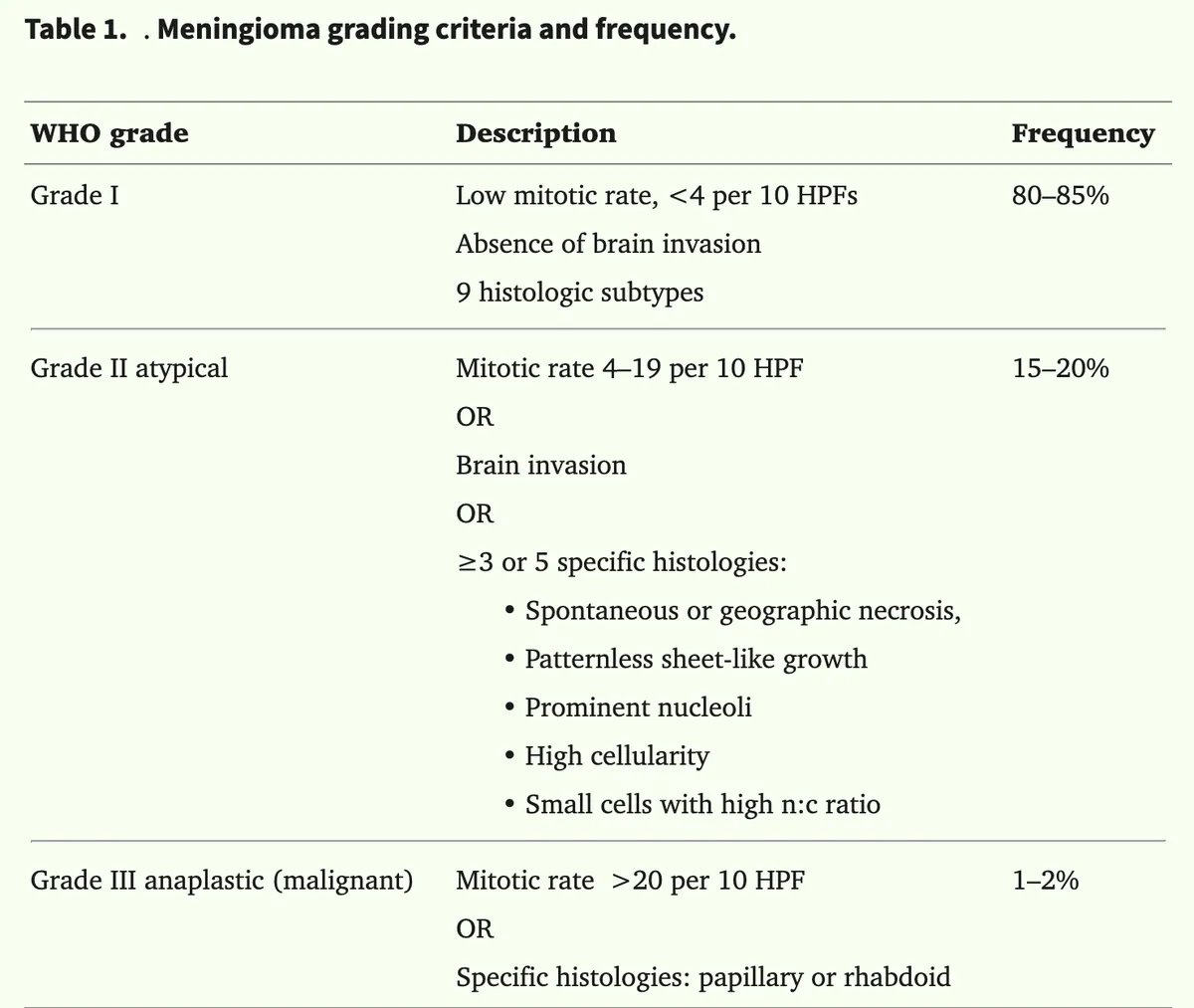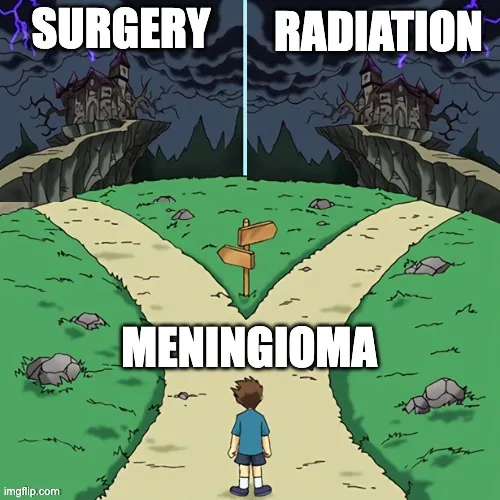meningioma
there are over 120 different types of brain tumors, lesions, and cysts.1 the only type i'm familiar with and will be sharing information on here is a meningioma, the type i've been diagnosed with.
meningiomas are growths originating from the meninges, or the layer between your brain and your skull. the meninges layer can further be broken down into the dura, arachnoid, and pia mater. these three layers of membrane surround and protect your brain and spinal cord.

meningioma is the most common type of primary brain tumor (tumor originating in the brain), occurring in more than 30% of all brain tumor cases. they are >2x more likely to occur in women than in men,2 and they're more commonly found in individuals over the age of 60-65, although they can occur at any age.

the vast majority (96-99%) of meningiomas are noncancerous, with about 78-81% considered benign (grade 1), 15-20% considered atypical, which means they're currently noncancerous but could become cancerous (grade 2), and only 1-4% considered malignant, or cancerous (grade 3).3 you can read more about the world health organization's grading of meningiomas here.

outside of having had prior exposure to radiation, such as in the case of a child receiving radiotherapy for leukemia, there is no known cause of meningioma. hormones, especially the female sex hormones estrogen and progesterone, are thought to contribute to the growth of meningioma, but beyond this, information on meningioma causes is limited.
meningiomas are typically slow-growing and harmless - until they're not. it's not uncommon for people to live for 5 or even 10 or more years with a meningioma without any symptoms. in fact, some studies show that around 20% of meningioma discoveries are incidental, meaning the patient had no symptoms but got an mri scan for other reasons, such as a car accident or sports injury.
in asymptomatic cases, the best course of action is often to watch and wait: do nothing and continue to monitor. but in symptomatic cases, there are two main options: surgery and radiation. surgery is the gold standard, but not all tumors are operable due to its size and location, and not all operable tumors are worth operating on if the risks of surgery outweigh the potential rewards.

if you've recently been diagnosed with a meningioma, it's important to gather as many expert opinions as you can on the advantages and disadvantages of surgery vs radiation, but ultimately the path you choose is a highly personal one that relies on your personal goals and risk tolerance. at the end of the day, you are the only person who needs to live with your brain and body for the rest of your life.
--
footnotes: